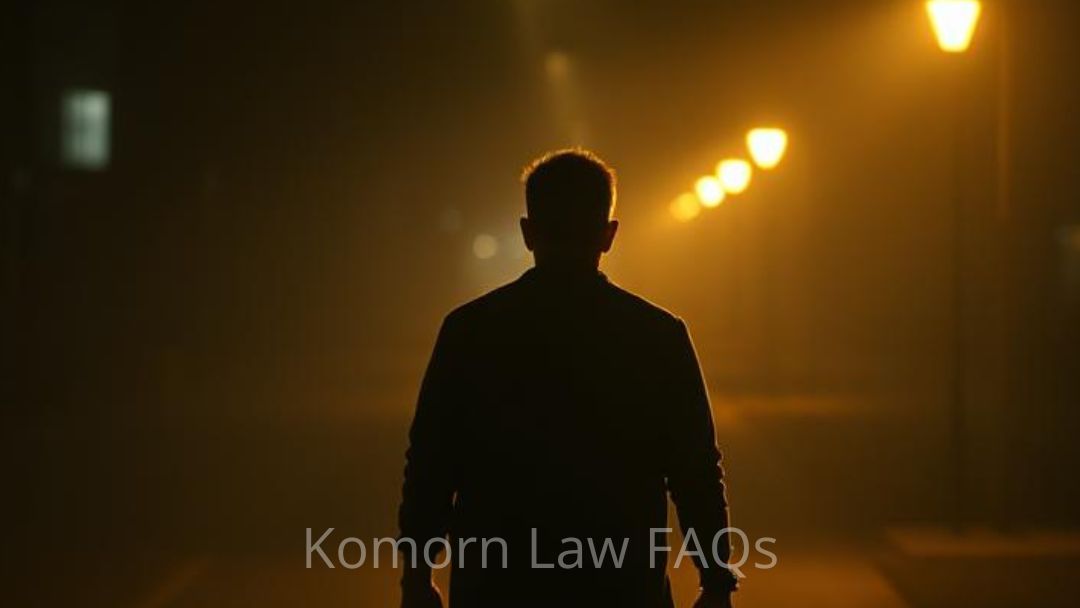Mere presence in a “high crime” area does not provide particularized suspicion of criminal activity for an investigatory detention.
People vs Prude
In People v Prude, Prude was in a parked vehicle at an apartment complex that was regularly patrolled by police because of frequent reports of crimes committed by non-residents. Prude was observed by an officer sitting alone during daylight hours, with the engine off, in an area of the parking lot where criminal activity was common. No one else was in the area, and there was no evidence Prude’s vehicle was parked illegally or describing how long he had been parked in that location.
I’m outta here
An officer approached Prude, asked for identification, and inquired whether he was a resident of the complex. Although Prude declined to identify himself, he answered that he was not a resident but that he stayed at the complex with his girlfriend who was a resident. A second officer then arrived, approached Prude’s vehicle, and upon recognizing Prude, provided his name to the first officer.
The first officer then advised Prude he needed to be with a resident while on the property before returning to his patrol vehicle to verify Prude’s tenant status through LEIN and to check the complex’s internal database to see if Prude had previously received a trespass warning from the complex. When asked, the second officer advised Prude he was being detained and that he was not free to leave. Prude then started the vehicle, rolled up his window, and drove away at a high rate of speed.
Komorn Law (248) 357-2550
Criminal Defense | DUI | Traffic Tickets | Business | Family Law
In it to win it
Prude was later arrested, charged, and eventually convicted by a jury of second degree fleeing and eluding under MCL 257.602a(4), and assaulting, resisting, or obstructing a police officer under MCL 750.81d(1). The Court of Appeals affirmed Prude’s convictions. Prude sought leave to appeal where he argued that because both offenses required the prosecution to prove beyond a reasonable doubt the police acted lawfully (see People v Chapo and People v Moreno), the prosecution presented insufficient evidence the officers lawfully detained him based on a reasonable suspicion he was trespassing. The Michigan Supreme Court granted leave and without any oral argument, reversed Prude’s convictions and remanded the case to the trial court to enter judgments of acquittal.
The article is continued here: Terry Stop and Refusal to Identify Yourself to Police
Source: Legal Update 157 Mich.gov
Just goes to show – when you fight there’s a chance you can win.
Better call Komorn (248) 357-2550
More Posts
Sometimes our posts provide a general overview of things with opinionated sarcasm and dry humor by the writer to lighten the same old same old of other law sites. It does not substitute for legal advice. Anyone charged with a criminal offense should consult an attorney for specific legal guidance. BTW. True Fact: When Michael Komorn fights the justice system there is only one focus. You and your rights.
Recent

Criminal Law FAQs – Drinking Alcohol or Smoking Marijuana and Driving
Michigan Criminal Laws FAQs Operating a Motor Vehicle Under The InfluenceWalking is cool... For fun and excercise. Not because you lost your license. Don't do the crime if you can't pay the price. But if you do get charged with a crime. Better Call Komorn to fight for...

Criminal Law FAQs – Probation Violations
Michigan Criminal Laws FAQs Theft CrimesAccording to Michigan State Law (Michigan Compiled Laws - MCL), a Probation Violation occurs when a person who has been sentenced to probation fails to comply with the terms and conditions of their probation order. These terms...
Related
Criminal Law FAQs – Marijuana Offenses
Michigan Criminal Laws FAQs Marijuana OffensesFAQ 1: Is recreational marijuana legal in Michigan? Answer: Yes, recreational marijuana is legal for adults 21 and over in Michigan. However, there are restrictions on possession, use in public places, and driving under...
Criminal Law FAQs – Operating While Intoxicated (DUI – OWI)
Michigan Criminal Laws FAQs Drunk Driving (Operating While Intoxicated - OWI)FAQ 1: What is the legal blood alcohol content (BAC) limit in Michigan? Answer: In Michigan, the legal BAC limit for operating a vehicle is 0.08% for individuals 21 years of age or older. For...
Criminal Sexual Conduct (CSC) – Michigan
Criminal Sexual Conduct (CSC) in Michigan: Definitions, Penalties, and Legal References.Criminal Sexual Conduct (CSC) is a set of laws in Michigan that define and penalize various forms of sexual offenses. These laws are categorized into four degrees, with each degree...
Update on Michigan’s Sick Time Act (Small Business Compliance)
Small Business Compliance Accrual Method: Employees accrue 1 hour of paid sick time forevery 30 hours worked, and unused paid sick time rolls over upto 72 hours, or 40 for a small business. Employers may limit theuse of earned sick time to 72 hours, or 40 for a small...
What Are Your Rights Before And After Arrest?
What are your rights before and after arrest?Generally, police require a search warrant to lawfully enter any private premises or to search electronic devices such as your phone or computer. If the police do not possess a search warrant, you are under no obligation to...
Michigan Probationers Allowed Medical Marijuana
Yea. We did that...What it is supposed to beOn February 11, 2021, the Michigan Court of Appeals ruled that judges cannot prohibit individuals on probation from using medical marijuana if they are registered patients under the Michigan Medical Marihuana Act (MMMA)....














